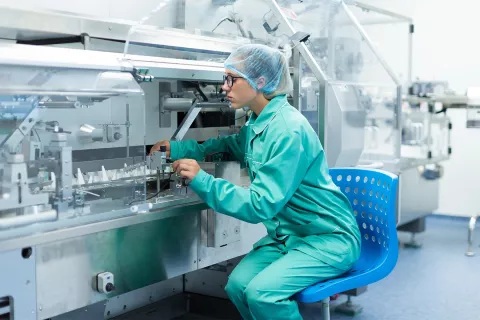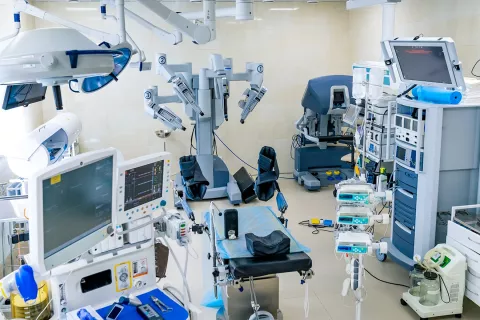
The medical device industry in Korea has been growing rapidly. This growth is a testament to the quality and innovation of medical devices manufactured in Korea, which are increasingly being exported globally. A critical factor in determining the safety and efficacy of Korean devices is their adherence to Korean Good Manufacturing Practices (KGMP), as recommended by the Ministry of Food and Drug Safety (MFDS). In this blog, we shall delve into the KGMP standards for medical devices, their importance, and the impact they have on the industry.
What is GMP?
Good Manufacturing Practices (GMP) are a set of regulations that provide guidelines on manufacturing, testing, and quality assurance to ensure that products sold in the market are safe and effective for their intended use. GMP covers all aspects of production, from raw materials and premises to the equipment and personal hygiene of the staff. Adherence to GMP ensures that products are consistently produced and controlled according to quality standards.
KGMP Standards for Medical Devices in Korea
In Korea, the MFDS is the agency responsible for regulating medical devices and ensuring that they meet the necessary GMP standards. Known as the KGMP, these standards are mandatory for all Class II, III, and IV medical device manufacturers operating in the country. KGMP certification is also required for foreign manufacturers who wish to export their products into Korea. The KGMP standards are comprehensive and cover various aspects of manufacturing, including:
- Quality Management System (QMS): Manufacturers must establish and maintain a QMS that ensures product quality and compliance with regulations.
- Personnel: Adequate personnel with the necessary qualifications and training must be employed to manage GMP-compliant processes.
- Premises and Equipment: The manufacturing facilities must be designed to prevent contamination and ensure a clean and efficient production process. Additionally, equipment must be properly maintained and calibrated.
- Production and Process Controls: Manufacturers need to establish Standard Operating Procedures (SOPs) for all production processes, which must be strictly followed to ensure consistency and quality.
- Quality Control: Manufacturers must have a robust quality control system in place, which involves the testing of raw materials, in-process materials, and finished products to ensure that they meet the specified standards.
- Documentation: Manufacturers must keep accurate and detailed records for all the stages of the manufacturing process, from production to distribution.
The Importance of KGMP Certification
KGMP certification is crucial for the following reasons:
- It ensures that medical devices are produced in a way that guarantees their safety and efficacy.
- It helps build trust among healthcare professionals and patients, who rely on the quality of medical devices.
- It is a prerequisite for accessing the Korean market and is often required by other countries who import medical devices from Korea.
- It enhances the manufacturer’s reputation, helps build brand image, and provides them with a competitive advantage in the global market.
The Impact of KGMP on the Industry
The implementation of KGMP has had a significant impact on the Korean medical device industry. It has helped improve product quality, increased consumer confidence, and has given a boost to exports. Korean medical device manufacturers are now recognized for their commitment to quality and compliance, which has opened new opportunities for them across international markets.
To sum up, KGMP standards for medical devices play a vital role in ensuring that products on the market are safe, effective, and of high quality. As the Korean medical device industry continues to expand and reach newer markets, KGMP certification will remain the cornerstone of its success. By adhering to these standards, manufacturers not only comply with the Regulatory requirements, but also demonstrate their dedication to excellence and patient safety.
To decode KGMP and medical device registration in South Korea, reach out to our trusted Regulatory experts today! Stay informed. Stay compliant.









